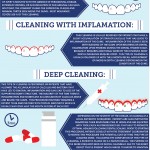A Quick Guide to Dental Operculum
Operculum, in dentistry, means a gum flap over any partially erupted tooth, particularly the third molar (wisdom tooth). This flap can get crushed between the tooth and the opposite tooth in the other jaw while chewing. The tissue of the operculum and the surrounding region of the gum can become tender and inflamed.
How is it caused?
An immediate effect of the tender operculum will be that some patients may cut down on food intake to avoid the pain. The patient experiences pain every time he or she chews over that tooth. Another possibility is the accumulation of food particles around the operculum. In due course, this can give rise to harmful bacteria, which have the potential to cause Operculitis or Pericoronitis.
If allowed to remain unattended, Operculitis can cause excessive pain in the jaw. Swelling may spread to the cheek next to the region. It is also possible that bacterial activity will cause a bad odor in the mouth, resulting in unexplained loss of appetite on the part of the affected person. If not attended to properly, it can result in gum and tooth disease.
The third molars are most commonly effected with Pericoronitis due to posterior location, difficulty to clean during brushing, and the fact that they erupt only in late teens.
Treatment
- Oral Hygiene Measures – The best response is firstly, to ensure good oral hygiene. Some people may even try to avoid chewing on that side of the gum to avoid pain. It is possible that in due course operculum is torn off by itself.
- Saline Gargles – These help in reduction of inflammation around the impacted tooth
- Medications – Analgesics and anti-inflammatory drugs are also prescribed to the patient, to reduce pain and inflammation.
- Removal of Impacted Tooth – Just as wisdom comes slowly, the wisdom tooth has a slow rate of eruption, and the process may take too long to remain bearable. The offending un-erupted tooth must be eliminated. Many people try to pull the operculum off by themselves. This is not at all advisable. It may cause more pain than it will relieve, and may cause dental health problems later. In such cases the recommended treatment is operculectomy, a surgical removal of the flap by a qualified dental practitioner, followed by removal of the impacted tooth.
Surgical Procedure for Recurrence
Since Operculitis is a recurring condition, especially when due regard is not given to oral hygiene maintenance, the only permanent solution is the removal of the impacted tooth.
The dentist first exposes a flap of the gums surrounding the tooth, followed by judicious removal of jaw bone, so as to expose the tooth. Once exposed, various dental instruments are then used to “elevate” the tooth out of its follicle. In more difficult cases, the tooth may be sectioned into two or more pieces, to facilitate removal. Once the tooth is out, the tooth socket is thoroughly irrigated and cleaned, followed by suturing the gum flap back into its position.
A 14-day follow up appointment will be scheduled after Operculum surgery.Aftercare
After the surgery, the patient is instructed to take a soft diet for some days. Pain, including mild to moderate swelling of the effected region is not uncommon, ans analgesics and drugs for reducing inflammation are prescribed.
Furthermore, the patient is advised to visit after about two weeks for a follow up, and to immediately seek dental help in case of emergency, such as spontaneous bleeding from the wound or severe pain.



